Disclosure: Meeple Mountain received a free copy of this product in exchange for an honest, unbiased review. This review is not intended to be an endorsement.
Age of Wonders: Planetfall (2022, Arcane Wonders) is a board game based on the video game of the same name. The video game (available on PC and all major consoles) is a 4X-style civilization game; as a part of the Age of Wonders series, Planetfall is the space exploration version of that video game family. I’m told the scale is grand—I have not played the video game—and Planetfall does things that all the great “civ” games do in letting players lead empires into space combat, conduct diplomacy with other species, customize leaders and units, and do a whole bunch of other things that strike me as being epic.
Age of Wonders: Planetfall (the board game) is so incredibly stripped down that it must be applauded for its simplicity. The tabletop version of Planetfall is a 20-to-40-minute card drafting game with Euro-style milestone scoring and small bonuses for each playable faction if they draft certain types of cards.
“The cover looks pretty epic,” my wife joked before our first two-player game. And, the cover DOES look pretty epic—the cover seems to portray a game that looks like it’s going to be Mass Effect for tabletop.
It isn’t that, but I think Planetfall nails what it is trying to achieve. I’m not sure that’s a game you will be itching to play after the first couple of times you get it to your table, though.
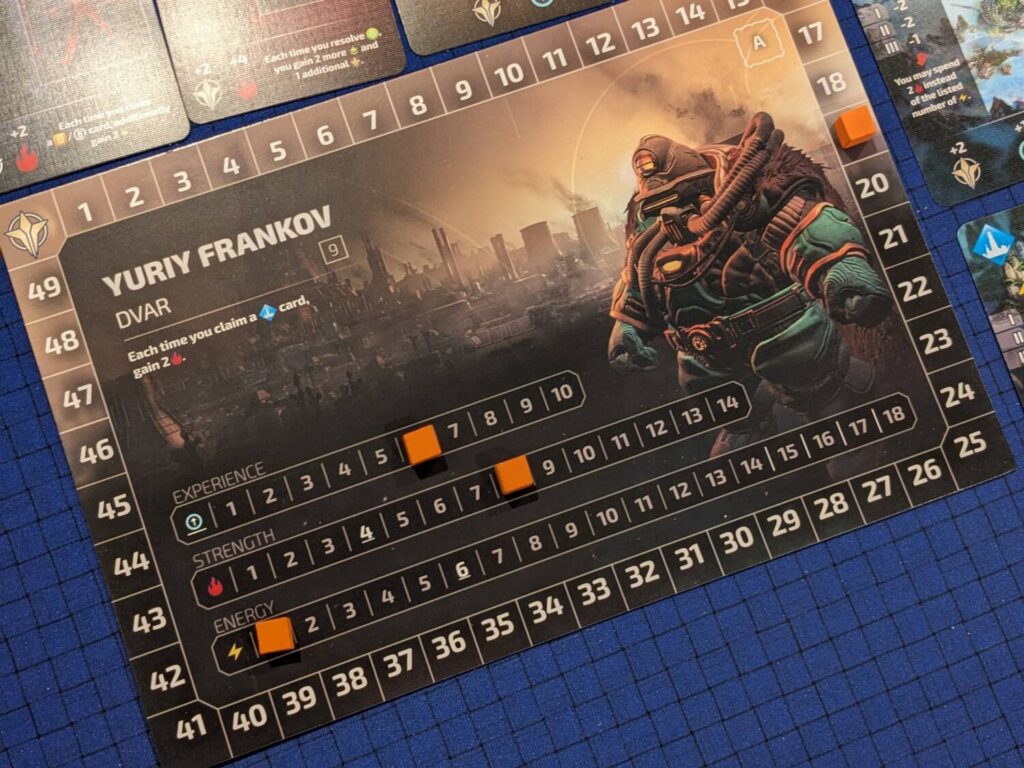
Let’s Give It This Much
Age of Wonders: Planetfall is a 2-6 player card drafting game (well, mostly), played over 14 turns across seven rounds.
Each player takes on the role of a faction leader with a player sheet tracking score, experience points, strength, and energy. Those latter two tracks are spendable resources, so you’ll be moving those trackers back and forth during play. Experience points never go down and range from 0-10 points. Experience is helpful mainly when taking on enemy factions, represented here in the form of cards.
After a small market of cards is built for each round, the player first in initiative order places their spaceship marker (essentially used as a bidding token in Planetfall) on one card in the market. Once each player has claimed one card, the market is resolved from top to bottom, left to right.
Cards come in four suits. Units must be fought or negotiated; Technology cards grant ongoing powers, then later end-game scoring conditions. Landmarks drive players towards a set collection strategy, and Pickup cards offer one-time energy bonuses or an income bonus which can be claimed at the start of each round.
If a player doesn’t like the cards in the market, they can instead choose to run Operations, which is the pass action in Planetfall but a little juicier. You can spend “Operations Points” on things like victory points, strength, and experience points, to make trades, and prepare for a better action on future turns. Operations isn’t that interesting, but it is a necessary evil in many games because it’s hard to consistently spend your other resources without one or both of them touching zero on the player mat.
Rounds are broken up into planet decks. Each of the seven rounds has a different planet deck, with cards progressing in difficulty and rewards. You’ll see most of a card’s deck in each play (particularly at higher player counts), so there’s not much replayability in terms of differences with these decks. A deck always has 14 cards and the breakdown of the four suits in a deck is always the same: four Unit cards, four Pickup cards, three Technology cards, and three Landmark cards.
Turns are breezy. Depending on where a player drafts their card, they go back into the initiative track in that order, meaning that if you pick first, you’ll pick first again in the next round. Card costs are higher if cards sit in the top row of the market tableau, so that’s the counterbalance for a player trying to always select a card first.
My games of Planetfall have always been under an hour. My two-player game was just over 30 minutes. I think experienced players might do a four-player game of this in about 20-30 minutes.
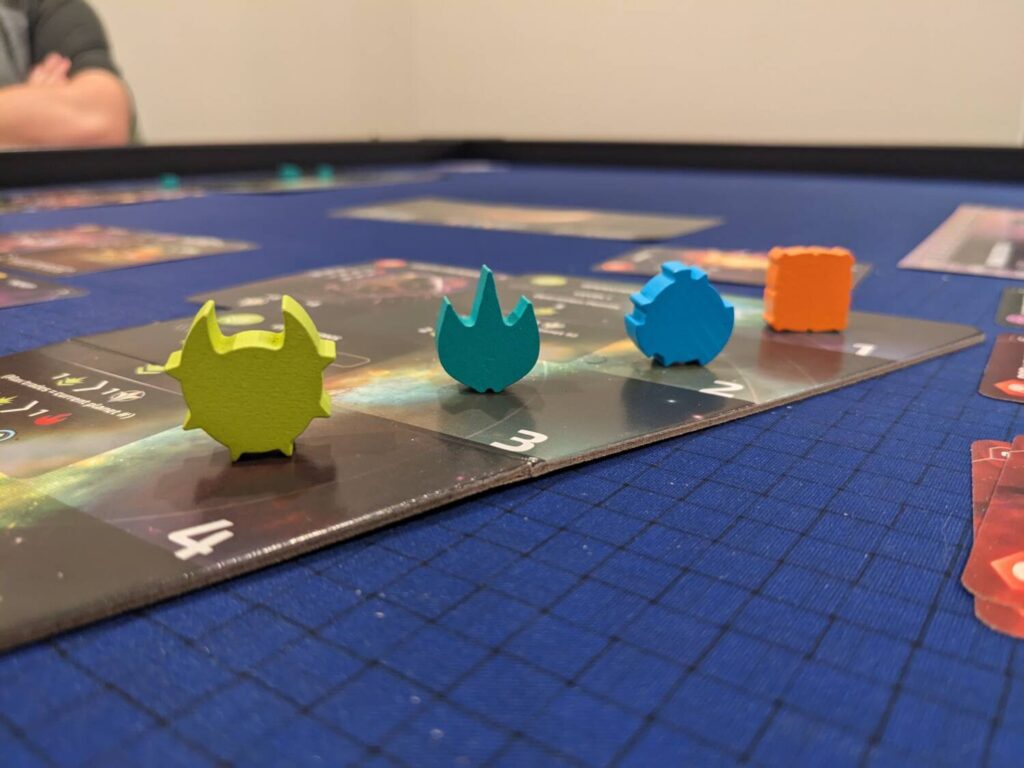
Perfectly Fine
Planetfall plays fast. It’s easy to teach. The scoring is all public, so it’s easy to tell how your opponents are doing. Planetfall sets up quickly and tears down fast.
I just wish it felt more interesting.
My wife hit on this after our first play; from turn to turn, the decisions are mildly interesting, but there is usually a clear-cut “best” choice on an action. Many of the cards, and all the Pickup cards, feel more than just samey. Often, the Pickup cards are exactly the same, with the same card name and same rewards. If there are end-game scoring milestones that point players to draft certain kinds of cards, they always will. And when in doubt, I’ve often found that taking the card that scores the most victory points is what I typically do no matter what the milestones say.
The game’s quick playtime is its best asset. I also like how cards are broken down by cost based on the level of the market where they currently sit. Some of the purple Technology cards have interesting bonuses that make them attractive no matter what you are looking to do. Income seems to be a fallacy in Planetfall—taking Pickup cards to get a one-unit energy boost seems like a waste. But I have found that Technology cards often have a reasonable cost and an ongoing income benefit, so I snap those up when I can.
The most disturbing part of the Planetfall experience as a reviewer comes at the end of the game. No matter what I have done in each of my plays, I have been within about 10 points of the other players. This could mean the game is exceptionally balanced. It could also mean that it doesn’t matter what you do in a game that screams “point salad”, because you are going to score 70-80 points no matter what.
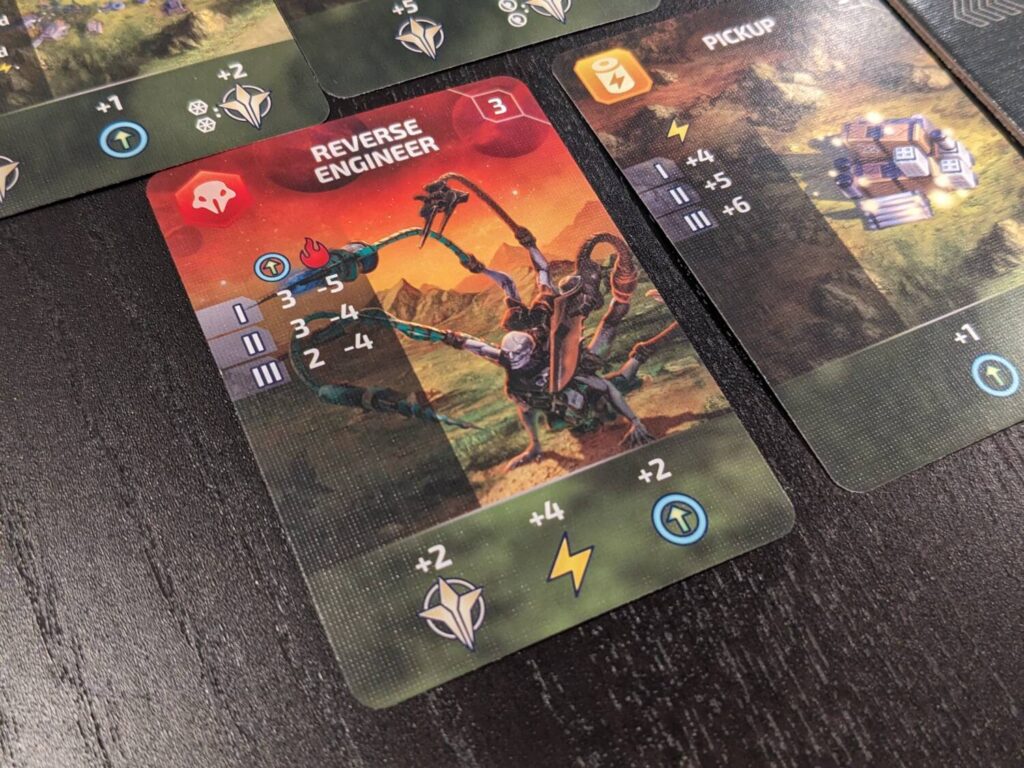
I mentioned earlier that Planetfall is mostly a card drafting game. One of the factions has a bonus tied to taking Operations actions. Operations actions result in a player not taking a card from the market. In one of our games, a player won by drafting only five cards for the entire game (so, only five cards while the rest of us had 13 or 14 cards each).
The rest of the time, he took Operations actions and used some of his Operations points to take victory points as one of the spending actions. (Later in the game, that will pay well, since you can always score points equal to the current round number.) Combined with picking up a Technology card that further boosted his Operations points and an end-game milestone that scored points for leftover strength resources, this became a powerful combo. Even then, scores were still tight.
I never had a wow moment with Planetfall, and the other players who joined me for separate games told me the same thing. You might have a somewhat clever turn or two, but nothing that screams “I’m a genius!” My wife and I both commented after our two-player game that the game might be too short. It has the look of a more strategic affair with potentially big decisions, but by the time you realize that it does not, you are dealing out the cards for the fifth round of a seven-round game.
Planetfall is in that tough-to-review category—it’s a middle-of-the-pack game, everything about it is fine (including the artwork and rules), and it’s a game that I began to forget about almost as soon as I finished writing this review. For fans of the video game, I wonder if Planetfall is a more interesting experience because those fans might recognize some of the enemies or the imagery. Otherwise, there are a lot of great choices in the card/open draft category that provide better gameplay.


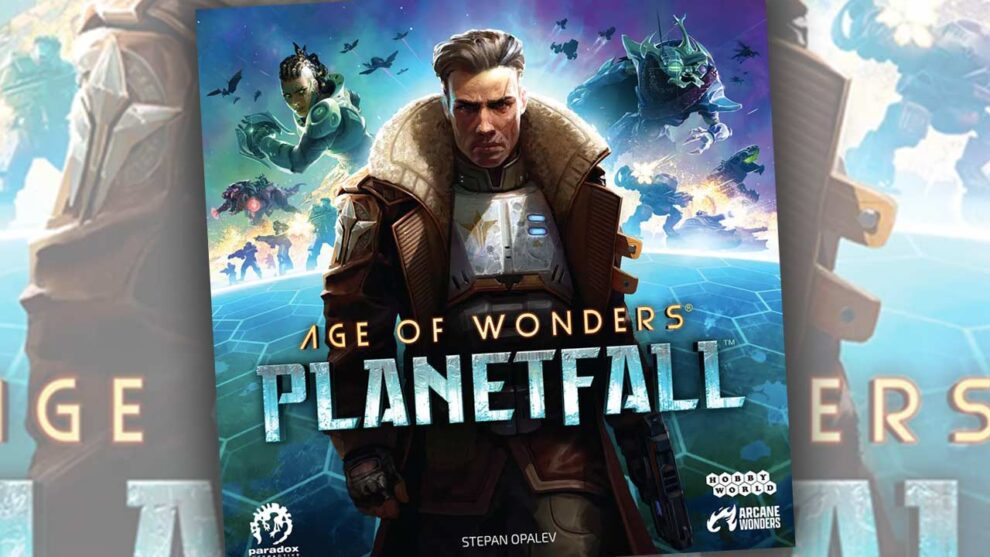



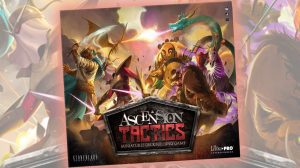





Add Comment